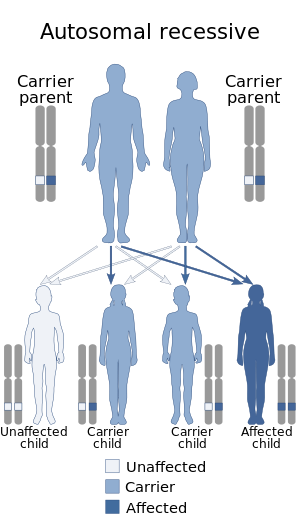Hypoprothrombinemia
| Hypoprothrombinemia | |
|---|---|
 |
|
| This condition is inherited in an autosomal recessive manner | |
| Classification and external resources | |
| Specialty | hematology |
| ICD-10 | D68.2 |
| ICD-9-CM | 286.3, 776.3 |
| OMIM | 613679 |
| eMedicine | ped/1133 |
| MeSH | D007020 |
Hypoprothrombinemia is a blood disorder in which a deficiency of prothrombin (Factor II) results in impaired blood clotting, leading to an increased physiological risk for bleeding, especially in the gastrointestinal system, cranial vault, and superficial integumentary system.
Hypoprothrombinemia can be the result of a genetic defect, may be acquired as the result of another disease process, or may be an adverse effect of medication. For example, 5-10% of patients with systemic lupus erythematosus exhibit acquired hypoprothrombinemia due to the presence of autoantibodies which bind to prothrombin and remove it from the bloodstream (lupus anticoagulant-hypoprothrombinaemia syndrome).
It may also be a rare adverse effect to Rocephin.
Hypoprothrombinemia can be treated with periodic infusions of purified prothrombin complexes.
...
Wikipedia
